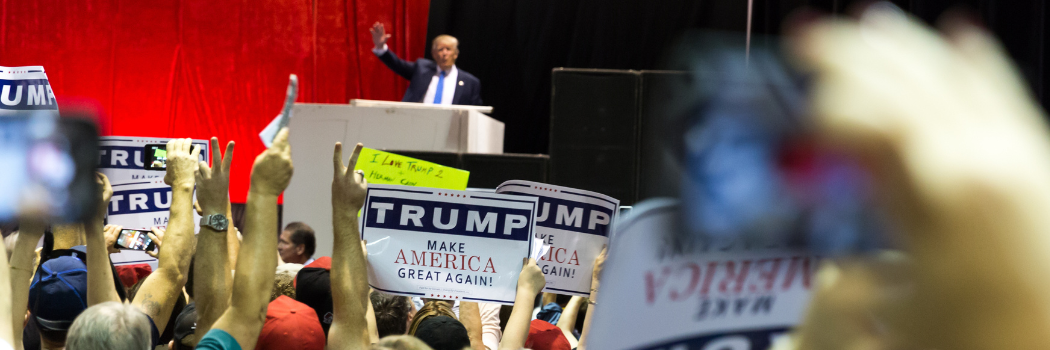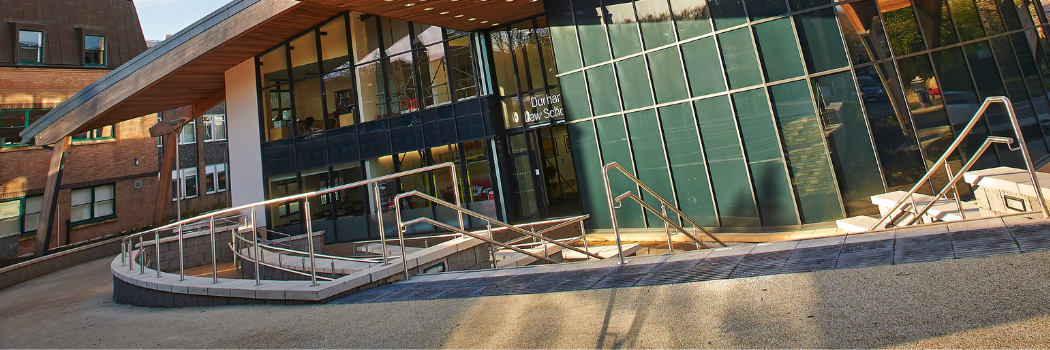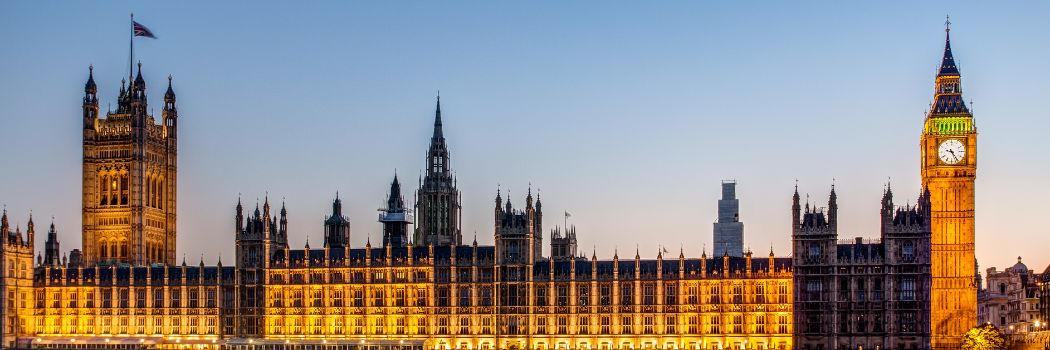Latest News and Thought Leadership
Will Donald Trump be ranked as a great president? Here’s what the research tells us
Associate Professor in US Politics David Andersen explores how President Trump could end up ranking compared to other US presidents.
Donald Trump’s approach to US space policy could throw up some surprises, especially with Elon Musk on board
Dr Bleddyn Bowen from the School of Government and International Affairs and Dr P.J. Blount from the Durham Law School predict what's in store for US space travel in Donald Trump's second presidency.
Is Donald Trump a fascist? An assessment from an expert in our Department of History
After Democratic Presidential candidate Kamala Harris said her Republican opponent Donald Trump was a Fascist, Dr Benedetta Carnaghi, from our Department of History, explores whether the former President meets the definition.
Can elections redefine what makes an ideal leader?
Election results shape public perceptions of “ideal” leadership, according to new research from the School. This influence inspires leaders to adopt similar traits, though “ideal” doesn’t always mean good or effective leadership.
Trump survived another apparent assassination attempt – but it won’t have the same positive effect on his polling
Donald Trump has been the subject of another apparent assassination attempt. Dr David Andersen, from our School of Government and International Affairs, explores whether this will boost the Republican Party presidential candidate's chances of a return to The White House.
Offering insights into global electoral integrity
Dr Juraj Medzihorsky is an Assistant Professor in our School of Government and International Affairs and part of the Varieties of Democracy (V-Dem) project. The V-Dem project compiles and analyses data to offer a deeper insight into global democracy and the integrity of the election process.
After teachers in England receive pay award – here’s what else needs to be done to keep them in schools
After the UK's Education Secretary Bridget Phillipson accepted recommendations to give teachers in England a 5.5% pay rise, Professor Stephen Gorard from our School of Education and Beng Huat See from the University of Birmingham explore what else can be done to keep teachers in the profession.
Is Britain on track for a zero-carbon power sector in six years?
The new government has created Great British Energy as part of its pledge to try and achieve zero-carbon electricity production by 2030. Professor Jon Gluyas and Dr Andrew Crossland, from the Durham Energy Institute as well as working in the Departments of Earth Sciences and Engineering respectively, assess whether that ambition is realistic.
Corruption hurts businesses but digital tools offer the hope of fighting it, say manufacturers in Ghana and Nigeria
Professor Joseph Amankwah-Amoah, from Durham University's Business School, has co-authored a study looking at how corruption can impact businesses in Nigeria and Ghana. Here his team explain what the study found and how those results can help influence policymakers.
World Day for International Justice: Shining the spotlight on our Law and Global Justice @ Durham group
Wednesday 17 July marks World Day for International Justice. Our Law and Global Justice @ Durham group (LGJD) was formed in 2015 and here they explain how they came together to better understand the role law plays in responding to global challenges.
Durham University alumni and supporters take up seats in UK Houses of Parliament
Durham University alumni and supporters will help to shape the future of UK politics following the country’s recent General Election.
How Durham researchers have informed UK General Election debate
Voters in the United Kingdom went to the polls on Thursday 4 July in a General Election – the first since 2019.
Elections provide an opportunity to talk about the most important issues facing society today.
As a global university, our research informs and shapes policy, transforming lives for the better, locally, nationally and globally.
During the election campaign, many of our researchers have been sharing their expertise on key areas of public and political debate.


/prod01/prodbucket01/media/durham-university/campaign-sites/general-election-2024-hub/Election-Banner-1920X640.jpg)



.png)







